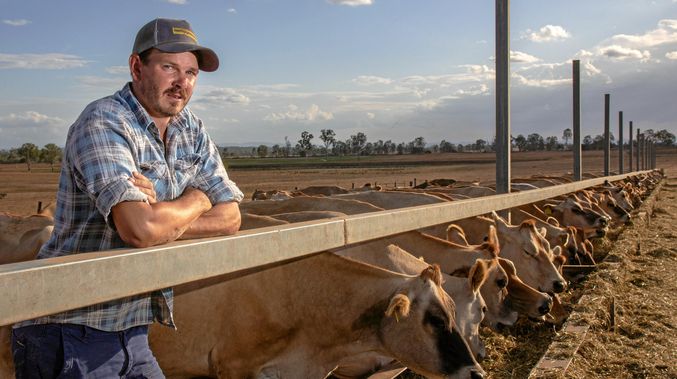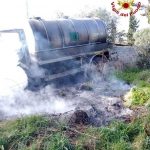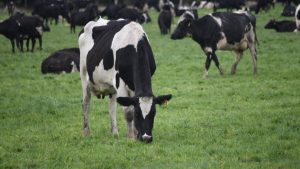
Since the beginning of the supermarkets milk price war and $1/litre milk in 2011, the dairy industry has faced a crisis.
Last month’s decision by Woolworths to end its $1/litre milk has drawn praise but also anger.
While farmers say it is a positive move, many also say it should never have come to this in the first place.
The change also comes too late for some.
Mount Tarampa’s Richard Peterkin is a fourth-generation dairy farmer, and despite surviving the millennium drought as well as the 2011 and 2013 floods, he said his time on the farm would soon come to an end.
“I don’t see a future in dairying,” Mr Peterkin said.
“It’s time for a career change for me. As soon as we can find a suitable buyer for our animals and our property – we’ll be exiting the industry.
We’ve been eternal optimists for so long and it’s come time where we’ve had to bite the bullet.
He said while Woolworths’ decision was a step in the right direction, it was too little too late and would not benefit his farm revenue.
“I don’t receive one cent from Woolworths, my supplier has a contract with Coles,” he said.
Coles has resisted calls to follow Woolworths’ lead, claiming increasing the price of its home-brand milk would put pressure on consumers.
But Mr Peterkin said the retail giant was in a position to make a serious change.
“If they had some guts, they have all the cards in their hands to dictate what price they need to make profit and for us to survive also,” he said.
He also criticised Woolworths for using the 10c increase on its home brand milk as a PR stunt to make it look like they were doing something.
He warned until genuine changes were made in the dairy industry, farmers would continue to struggle.
“It’s too little – the damage was done ten years ago,” he said.
Until the farm-gate milk price reaches at least a dollar a litre, not the supermarket price, dairy farming won’t be sustainable in Australia.
The devastatingly low farm-gate prices have seen many dairy farms across the nation disappear, and Mr Peterkin said more would fold unless real change was enacted.
“Some people won’t be able to shake this, and some people won’t be able to see this through,” he said.
“We’ve lost a lot of good farmers and we’ve lost a lot of good genetics, which leaves the doors open for imports to come in.”
He said the industry would struggle in the long run unless the industry changed quickly.
“I can see no young people getting into the industry because there are so many negatives to stop them,” he said.
While it might be too late for Mr Peterkin and his family, he hoped changes would be made before the industry was lost forever.
“I hope people don’t have to go hungry before they realise how important it is,” he said.
Farmers sceptical of milk price floor proposal
THE federal opposition has pledged to investigate an plan to force processors to pay a minimum farm-gate price to dairyfarmers under a plan to save the nation’s industry.
The federal Labour party announced it believed government intervention was necessary to save the struggling sector, and would investigate introducing a price floor to farm gate prices for milk.
The daiy price floor would mean producers could not be paid less than the value of their product.
The opposition issued a statement saying it would task the Australian Competition and Consumer Commission to test the scheme efficacy.
“It is not acceptable for our farmers to be paid less than the cost of producing their milk,” the statement said.
“If a floor price is needed to end this crisis, that’s what Labor will deliver.”
However, some dairy farmers, like Mount Tarampa’s Richard Peterkin, are sceptical of the proposal.
“Its a step in the right direction but it won’t solve everybody’s problems. I don’t think that’s going to be the answer,” Mr Peterkin said.
If the price is set at a bottom and they can get it cheaper overseas – they’re not going to want to buy a local product.
He said the industry was in such dire straights in-part because of a lack of action from government.
He warned until genuine change from the government came, the industry would continue to suffer.
“If the government really wanted the regulate the milk industry, we wouldn’t be in this situation,” he said.
“If there was any foresight into providing for the future population, they would invest in agriculture and the sustainability of agriculture.”

























